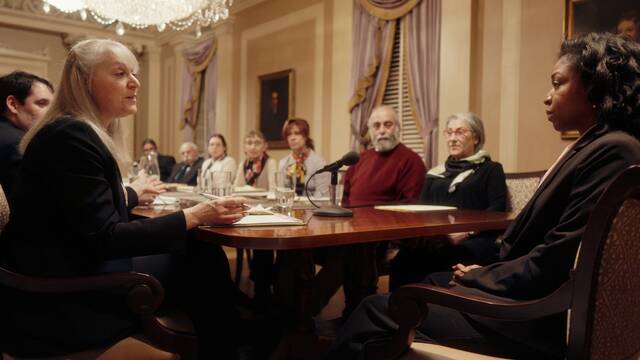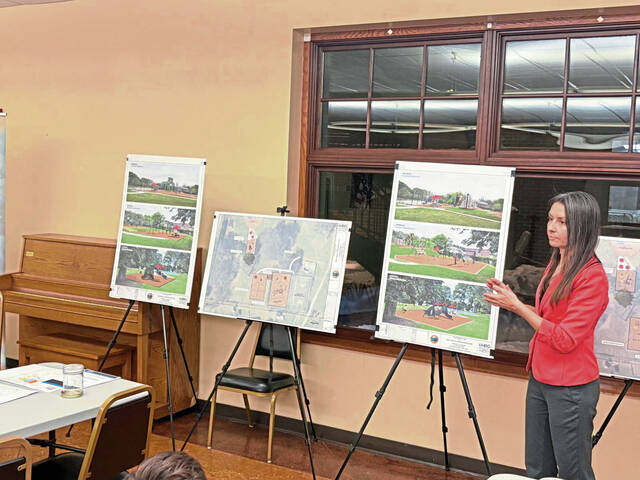As part of its Emerging Filmmakers series, The Lindsay Theater and Cultural Center is preparing to screen a film that will both thrill and challenge its audience.
In “Validity,” a doctor working on research regarding treatment practices for hypothermia unearths studies that could cause a breakthrough in the field — but the studies were conducted by a Nazi scientist on victims of the Holocaust. Based on true events, the characters are split on the morality of using the research, considering its provenance.
Running around 70 minutes long, the feature film was written and produced by Katie Vargish and directed by Randy Kovitz, who also plays a role in the film.
The script began as part of a Carnegie Mellon School of Drama MFA grant competition from the Sloan Foundation.
“The script competition is a sort of marrying of science and storytelling,” Vargish said. “I got to work with a researcher named Robert Pozos, who was a hypothermia researcher and physiologist in the 1980s. He attempted to validate the Nazi-collected research that was collected from the Dachau concentration camp.”
What was, at the time, a battle of words in writing between researchers becomes a dramatized film version in “Validity.” In the world of the film, this ethical back-and-forth is being documented by two student filmmakers.
Kovitz was attracted to the film because of its controversial nature.
“I really thought that if people thought it shouldn’t be done, then it probably should be done,” he said.
A longtime career actor and a professor at CMU, he had relatives who were victims of the Holocaust. He also played Otto Frank in a 2015 Pittsburgh Pubic Theater production of “The Diary of Anne Frank.”
“I immersed myself for six months in Holocaust research at that time. So it was something that interested me greatly. Also, when I read the script, the thing that really got me is that there is no answer to this question,” Kovitz said. “I think those avenues of inquiry are most interesting.”
Kovitz and Vargish worked together in the process of creating the film. As much work as went into firming up the script and putting a production together, they only filmed for six days.
“It was very difficult. It was joyous, it was chaotic,” Kovitz said.
Such a tight production schedule — they shot more than 10 pages of script a day, significantly more than the average — required both Kovitz and Vargish to work tirelessly.
“We had to plan very, very carefully. I called in every favor that I had and got every person that I’d worked with in the past. Kate did a lot of that as well,” Kovitz said.
Through both pre-shooting rewriting and post-production editing, Kovitz and Vargish have crafted a narrative that they feel will be thought-provoking and representative of the ethical debate within the film’s plot.
Both Kovitz and Vargish are still conflicted about the “right” answer to the dilemma at the heart of the film.
“Nowadays, I think there’s a lot of skepticism in science and medicine, and I think this film, in a lot of ways, does speak to that. I think that it speaks to the nuance, too, of skepticism, that it comes from so many places. A lot of those places can be very personal for people,” Vargish said.
Kovitz still feels ambivalent about this issue.
“I’m really mixed up about it,” he said. “I’ve read a lot about experiments in concentration camps and the dehumanization, which is a big theme in our film, of human beings.”
He cited characters on both sides of the film’s major argument, one saying that science should “adapt” to use all available useful information despite its morality, and others who believe that it’s immoral to “use the misery and the murder of others for anything.”
Kovitz and Vargish hope to take the film to festivals or find distribution for it in the future. Mainly, they want the film to be seen.
“A lot of stories of that era are becoming lost,” Kovitz said. “With what’s going on in the world right now, I think this is a very timely movie and very important to get out.”








